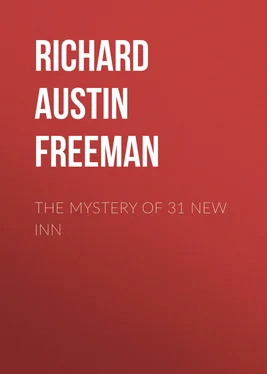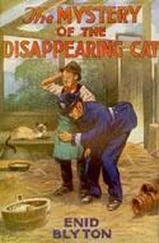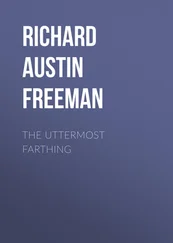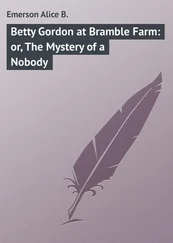Richard Austin Freeman - The Mystery of 31 New Inn
Здесь есть возможность читать онлайн «Richard Austin Freeman - The Mystery of 31 New Inn» — ознакомительный отрывок электронной книги совершенно бесплатно, а после прочтения отрывка купить полную версию. В некоторых случаях можно слушать аудио, скачать через торрент в формате fb2 и присутствует краткое содержание. Жанр: foreign_prose, Классический детектив, foreign_detective, foreign_antique, на английском языке. Описание произведения, (предисловие) а так же отзывы посетителей доступны на портале библиотеки ЛибКат.
- Название:The Mystery of 31 New Inn
- Автор:
- Жанр:
- Год:неизвестен
- ISBN:нет данных
- Рейтинг книги:4 / 5. Голосов: 1
-
Избранное:Добавить в избранное
- Отзывы:
-
Ваша оценка:
- 80
- 1
- 2
- 3
- 4
- 5
The Mystery of 31 New Inn: краткое содержание, описание и аннотация
Предлагаем к чтению аннотацию, описание, краткое содержание или предисловие (зависит от того, что написал сам автор книги «The Mystery of 31 New Inn»). Если вы не нашли необходимую информацию о книге — напишите в комментариях, мы постараемся отыскать её.
The Mystery of 31 New Inn — читать онлайн ознакомительный отрывок
Ниже представлен текст книги, разбитый по страницам. Система сохранения места последней прочитанной страницы, позволяет с удобством читать онлайн бесплатно книгу «The Mystery of 31 New Inn», без необходимости каждый раз заново искать на чём Вы остановились. Поставьте закладку, и сможете в любой момент перейти на страницу, на которой закончили чтение.
Интервал:
Закладка:
"S'quite s'fficient, thang you. Gebback to bed now. Much 'bliged frall your kindness"—here I turned him round—"no, really; m'feeling rather tired. Sh'like to lie down now, f'you'd be s'good."
"You must walk about a little longer, Mr. Graves," I said. "It would be very bad for you to go to sleep again."
He looked at me with a curious, dull surprise, and reflected awhile as if in some perplexity. Then he looked at me again and said:
"Thing, sir, you are mistake—mistaken me—mist—"
Here Mrs. Schallibaum interrupted sharply:
"The doctor thinks it's good for you to walk about. You've been sleeping too much. He doesn't want you to sleep any more just now."
"Don't wanter sleep; wanter lie down," said the patient.
"But you mustn't lie down for a little while. You must walk about for a few minutes more. And you'd better not talk. Just walk up and down."
"There's no harm in his talking," said I; "in fact it's good for him. It will help to keep him awake."
"I should think it would tire him," said Mrs. Schallibaum; "and it worries me to hear him asking to lie down when we can't let him."
She spoke sharply and in an unnecessarily high tone so that the patient could not fail to hear. Apparently he took in the very broad hint contained in the concluding sentence, for he trudged wearily and unsteadily up and down the room for some time without speaking, though he continued to look at me from time to time as if something in my appearance puzzled him exceedingly. At length his intolerable longing for repose overcame his politeness and he returned to the attack.
"Surely v' walked enough now. Feeling very tired. Am really. Would you be s'kind 's t'let me lie down few minutes?"
"Don't you think he might lie down for a little while?" Mrs. Schallibaum asked.
I felt his pulse, and decided that he was really becoming fatigued, and that it would be wiser not to overdo the exercise while he was so weak. Accordingly, I consented to his returning to bed, and turned him round in that direction; whereupon he tottered gleefully towards his resting-place like a tired horse heading for its stable.
As soon as he was tucked in, I gave him a full cup of coffee, which he drank with some avidity as if thirsty. Then I sat down by the bedside, and, with a view to keeping him awake, began once more to ply him with questions.
"Does your head ache, Mr. Graves?" I asked.
"The doctor says 'does your head ache?'" Mrs. Schallibaum squalled, so loudly that the patient started perceptibly.
"I heard him, m'dear girl," he answered with a faint smile. "Not deaf you know. Yes. Head aches a good deal. But I thing this gennleman mistakes—"
"He says you are to keep awake. You mustn't go to sleep again, and you are not to close your eyes."
"All ri' Pol'n. Keep'm open," and he proceeded forthwith to shut them with an air of infinite peacefulness. I grasped his hand and shook it gently, on which he opened his eyes and looked at me sleepily. The housekeeper stroked his head, keeping her face half-turned from me—as she had done almost constantly, to conceal the squinting eye, as I assumed—and said:
"Need we keep you any longer, doctor? It is getting very late and you have a long way to go."
I looked doubtfully at the patient. I was loath to leave him, distrusting these people as I did. But I had my work to do on the morrow, with, perhaps, a night call or two in the interval, and the endurance even of a general practitioner has its limits.
"I think I heard the carriage some time ago," Mrs. Schallibaum added.
I rose hesitatingly and looked at my watch. It had turned half-past eleven.
"You understand," I said in a low voice, "that the danger is not over? If he is left now he will fall asleep, and in all human probability will never wake. You clearly understand that?"
"Yes, quite clearly. I promise you he shall not be allowed to fall asleep again."
As she spoke, she looked me full in the face for a few moments, and I noted that her eyes had a perfectly normal appearance, without any trace whatever of a squint.
"Very well," I said. "On that understanding I will go now; and I shall hope to find our friend quite recovered at my next visit."
I turned to the patient, who was already dozing, and shook his hand heartily.
"Good-bye, Mr. Graves!" I said. "I am sorry to have to disturb your repose so much; but you must keep awake, you know. Won't do to go to sleep."
"Ver' well," he replied drowsily. "Sorry t' give you all this trouble. L' keep awake. But I think you're mistak'n—"
"He says it's very important that you shouldn't go to sleep, and that I am to see that you don't. Do you understand?"
"Yes, I un'stan'. But why does this gennlem'n—?"
"Now it's of no use for you to ask a lot of questions," Mrs. Schallibaum said playfully; "we'll talk to you to-morrow. Good night, doctor. I'll light you down the stairs, but I won't come down with you, or the patient will be falling asleep again."
Taking this definite dismissal, I retired, followed by a dreamily surprised glance from the sick man. The housekeeper held the candle over the balusters until I reached the bottom of the stairs, when I perceived through the open door along the passage a glimmer of light from the carriage lamps. The coachman was standing just outside, faintly illuminated by the very dim lamplight, and as I stepped into the carriage he remarked in his Scotch dialect that I "seemed to have been makin' a nicht of it." He did not wait for any reply—none being in fact needed—but shut the door and locked it.
I lit my little pocket-lamp and hung it on the back cushion. I even drew the board and notebook from my pocket. But it seemed rather unnecessary to take a fresh set of notes, and, to tell the truth, I rather shirked the labour, tired as I was after my late exertions; besides, I wanted to think over the events of the evening, while they were fresh in my memory. Accordingly I put away the notebook, filled and lighted my pipe, and settled myself to review the incidents attending my second visit to this rather uncanny house.
Considered in leisurely retrospect, that visit offered quite a number of problems that called for elucidation. There was the patient's condition, for instance. Any doubt as to the cause of his symptoms was set at rest by the effect of the antidotes. Mr. Graves was certainly under the influence of morphine, and the only doubtful question was how he had become so. That he had taken the poison himself was incredible. No morphinomaniac would take such a knock-down dose. It was practically certain that the poison had been administered by someone else, and, on Mr. Weiss's own showing, there was no one but himself and the housekeeper who could have administered it. And to this conclusion all the other very queer circumstances pointed.
What were these circumstances? They were, as I have said, numerous, though many of them seemed trivial. To begin with, Mr. Weiss's habit of appearing some time after my arrival and disappearing some time before my departure was decidedly odd. But still more odd was his sudden departure this evening on what looked like a mere pretext. That departure coincided in time with the sick man's recovery of the power of speech. Could it be that Mr. Weiss was afraid that the half-conscious man might say something compromising to him in my presence? It looked rather like it. And yet he had gone away and left me with the patient and the housekeeper.
But when I came to think about it I remembered that Mrs. Schallibaum had shown some anxiety to prevent the patient from talking. She had interrupted him more than once, and had on two occasions broken in when he seemed to be about to ask me some question. I was "mistaken" about something. What was that something that he wanted to tell me?
Читать дальшеИнтервал:
Закладка:
Похожие книги на «The Mystery of 31 New Inn»
Представляем Вашему вниманию похожие книги на «The Mystery of 31 New Inn» списком для выбора. Мы отобрали схожую по названию и смыслу литературу в надежде предоставить читателям больше вариантов отыскать новые, интересные, ещё непрочитанные произведения.
Обсуждение, отзывы о книге «The Mystery of 31 New Inn» и просто собственные мнения читателей. Оставьте ваши комментарии, напишите, что Вы думаете о произведении, его смысле или главных героях. Укажите что конкретно понравилось, а что нет, и почему Вы так считаете.












